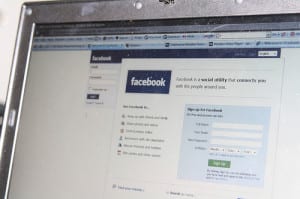Facebook has been hogging the limelight, reaching that milestone as the world’s largest social network with almost 500 million users worldwide. Never has it been featured so often as this last year, and unfortunately, it’s been for all the wrong reasons. In response to a large number of its members voicing concerns for their privacy, Facebook made some recent changes so it might be easier for users to hide their personal information. For the most part it seems to have worked; less people are talking about it and the media have taken the spot off Facebook. But are users really safe though due to this new change? I discovered the answer to that very question firsthand recently, and definitely not to my liking.
It all started when I came back from the supermarket. I logged into Facebook as usual to check what activity had occurred while I was gone. As I finished replying to the comments on my profile page I looked at the news feed. As I did, something struck me as very odd. I saw that Facebook was telling me that I had just become friends with someone I knew a long time ago; “Sam Bakker”. I clicked on my own name out of curiosity really, and loaded the profile. As I looked, I realised that this account looked like mine, sounded like mine and yet, it was certainly was not me. My photo was there and all my information had been stolen from my website; this person was becoming friends with all my friends. This black hat internet marketer was stealing my online identity right in front of me and there was nothing I could do about it.
This new identity theft tactic marketers are using is done so they can sneak under Facebook spam radar whilst exploiting a trusted member’s fans to make money. The Black Hat Marketer finds information about a specific member from an outside online source and uses their name, photo and information to replicate account. They use the person’s college and year group to add friends to their account. These friends – thinking it is who it should be – accept the fake profile as a friend. In order to pass itself off as a legitimate account, the thief communicates with these new friends just as if it was the real person. They market the person’s website, talk about high school and do all they can to imitate the person they are impersonating. As more and more friends begin to engage with the fake account the Black Hat Marketer begins to monetize it; doing quizzes and inviting his friends to do the same, or emailing out invites to join groups he makes money from.
This tactic is very hard to stop and while it is so easy to execute and make money online from, Black Hat Marketers will continue to implement it. There is not a lot a user can do once their account is stolen. However, if you want to learn how I did it you can view how here. Facebook’s new privacy changes may sound good, but they do not influence the threats that plague Facebook security, and as more marketers latch onto this, Facebook will need to come up with more effective ways of preventing these serious offenses from occurring. Below I have included a video which you can watch. I filmed this video as the thief took advantage of my identity on Facebook.
[youtube]http://www.youtube.com/watch?v=csFXWZwXwjg[/youtube]
![Reblog this post [with Zemanta]](http://img.zemanta.com/reblog_e.png?x-id=11d518ec-423c-4976-9f1d-face8ffe0ea5)


